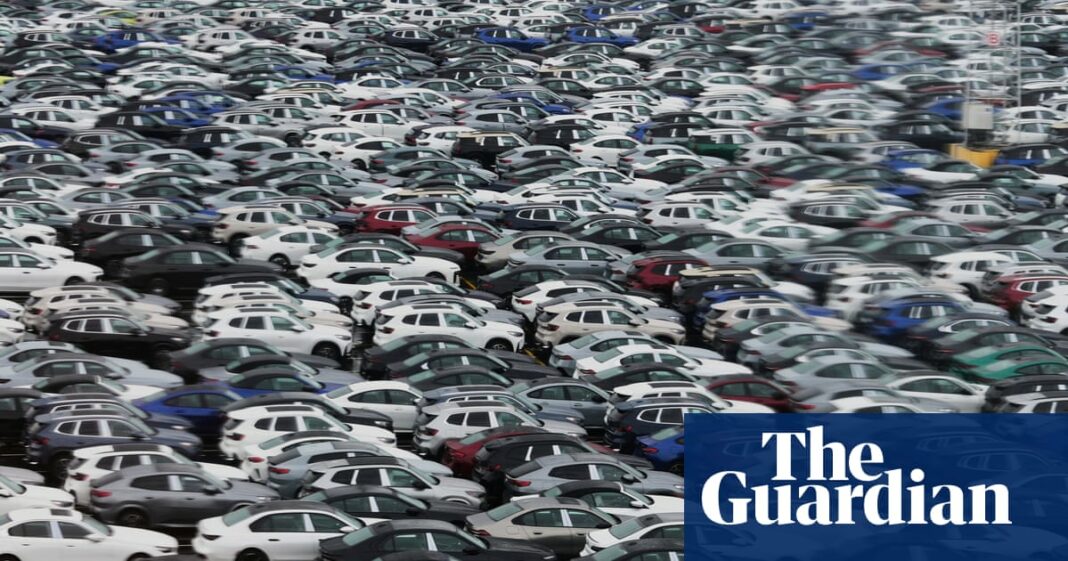Washington will not lower steep tariffs on European cars until Brussels has introduced legislation to reduce its own tariffs on US exports, maintaining pressure on the EU’s automotive industry.
While the Trump administration has agreed to lower the current 27.5% US tariffs on European cars and car parts to 15%, details of a framework trade deal published on Thursday revealed the terms and conditions.
Donald Trump and the president of the European Commission, Ursula von der Leyen, announced the deal on 27 July at Trump’s luxury golf course in Turnberry, Scotland, after an hour-long meeting that followed months of negotiations.
In a joint statement, the US and the EU listed commitments including the EU’s pledge to eliminate tariffs on all US industrial goods, and provide preferential market access for a wide range of US seafood and agricultural goods.
The US has agreed in principle to charge a 15% tariff on most EU imports, including autos, pharmaceuticals, semiconductors and lumber.
US officials have suggested it could only be a matter of weeks before the administration lowers its high tariffs on the EU auto industry, depending on how long it takes the bloc to formally legislate its pledges to pare back tariffs on the US.
“As soon as they’re able to introduce that legislation – and I don’t mean pass it and fully implement it, but really introduce it – then we will be in a position to provide that relief,” an unnamed US official told Reuters. “And I will say that both sides are very interested in moving quickly.”
But the joint statement makes clear that EU carmakers will continue to face 27.5% US tariffs until the bloc introduces new laws. US tariffs on EU cars will be lowered “from the first day of the same month in which the European Union’s legislative proposal is introduced”, it says, adding that the legislation must “be consistent with this Framework Agreement and enacted by the necessary legislatures”.
European leaders have some reservations. Last month the French prime minister, François Bayrou, described “a dark day when an alliance of free peoples, united to affirm their values and defend their interests, resolves to submission”.
And the Spanish prime minister, Pedro Sánchez, said at a news conference earlier this week, “I support this trade agreement, but I do so without any enthusiasm,” noting the deal will have a limited impact on Spain’s economy given its smaller exposure to the US market.
On Thursday, the response from European and US industry was equally mixed. The Spanish Federation of Food and Beverage Industries said in a statement that “an agreement is better than an open trade war”, but added: “We do not accept that exports of our products to the United States should be penalised.”
The Distilled Spirits Council of the United States criticized the deal, noting 15% tariffs on EU spirit imports to the US could result in an estimated retail loss of more than $1bn and 12,000 jobs.
“We are disappointed that this joint statement did not include permanent tariff-free trade for distilled spirits on both sides of the Atlantic,” the Distilled Spirits Council president and CEO, Chris Swonger, said in a statement.
Reuters contributed reporting



